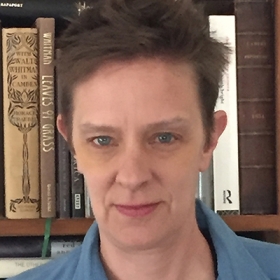
Associate Professor, American Studies
B.A., UC Berkeley; M.A., Ph.D., UCLA
Appointed In
2009
Office
Swan 324
Hours
Wednesdays 1-4pm in person and by appointment
Heather Lukes teaches courses on queer theory, queer color critique, queer L.A., and psychoanalysis.
Her research interests include U.S. literature and film, queer and feminist theory, and psychoanalytic criticism.
